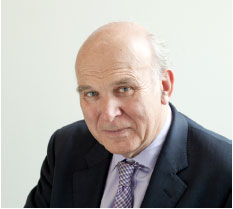
Summary: UK approves expanded fair use definitions which might include digital lockers plus bans all attempts to block copyright infringing (filesharing) websites…
The UK has announced sweeping changes to its intellectual property laws in response to a comprehensive analysis delivered last May titled, “Digital Opportunity: an Independent Review of IP and Growth.” An official UK government communication characterizes the report, authored by Professor Ian Hargreaves, saying it “sets out a powerful vision for the UK’s future success through better uses of IP. The Government is grateful to him and his team for their hard work and particularly commends their resolution to ground their report in reliable evidence. This response to that report … also indicates the way we will be tackling online copyright infringement, both through the Digital Economy Act and through voluntary action by responsible businesses. This is not the limit of the Government’s ambitions for IP. We are publishing alongside this document the UK’s IP Crime Strategy and International strategy for IP, which expand on our plans to defend brands and creative content from illegal copying and to encourage other countries to share our vision for a future where more value is created from IP not just in the UK but across the world.” Business Secretary Vince Cable said the move will bring copyright law into line with the “real world” and with “consumers reasonable expectations.” (Download the complete government response here.)
Below are some key points of the new strategy as outlined on the UK Business Innovations & Skills website (BIS). Most notable are a softening of the “fair use” concepts with respect to individuals copying legally purchased digital files which may change the UK rules for digital cloud based lockers. A parody can be created without permission from the copyright holder and the report calls for the creation of a digital license clearinghouse. A key component of bringing the copyright laws into the “modern era” is that plans to block copyright infringing websites are to be dropped.
- That the UK should have a Digital Copyright Exchange; a digital market place where licenses in copyright content can be readily bought and sold. This could add up as much as £2 billion a year to the UK economy by 2020. The Government will announce arrangements for how this work will be driven forward later in the year.
- Copyright exceptions covering limited private copying should be introduced to realize growth opportunities. Thousands of people copy legitimately purchased content, such as a CD to a computer or portable device such as an IPod, assuming it is legal. This move will bring copyright law into line with the real world, and with consumers’ reasonable expectations.
- Copyright exceptions to allow parody should also be introduced to benefit UK production companies and make it legal for performing artists, such as comedians, to parody someone else’s work without seeking permission from the copyright holder. It would enable UK production companies to create programmes that could play to their creative strengths, and create a range of content for broadcasters.
- The introduction of an exception to copyright for search and analysis techniques known as ‘text and data mining’, allowing research scientists such as medical researchers greater access to data.
- Establishing licensing and clearance procedures for orphan works (material with unknown copyright owners). This would open up a range of works that are currently locked away in libraries and museums and unavailable for consumer or research purposes.
- That evidence should drive future policy – The Government has strengthened the Intellectual Property Office’s economics team and has begun a program of research to highlight growth opportunities.
In the above video Vince Cable says, “We’ve updated the law and made it much more friendly for individual consumers and business while protecting the very real rights of creative artists, filmmakers and protecting them from criminal piracy, getting the balance between those things correct.

Category: Awards, Exclusive, Featured, Publishing
About the Author
David M. Ross has been covering Nashville's music industry for over 25 years. dross@musicrow.comView Author Profile



